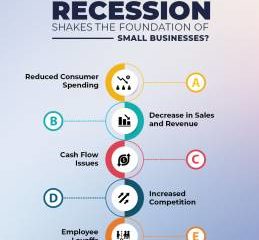Politics
Shopify Guide — Here’s How to Become an Expert
Published
1 year agoon
By
Drew Simpson
You may have already known about the Shopify marketplace and how it is one of the best platforms to make money by selling your products and services online.
Whether you are a Shopify designer, developer, industry authority, or someone who wants to start a Dropshipping business, to become an expert, you will have to learn all the crucial aspects of the marketplace.
Unarguably, Shopify has many difficult aspects in growing in the development industry and web design. However, one aspect that is often overlooked is building connections within the Shopify Ecosystem.
Whether it’s marketing yourself as an expert, writing Shopify-specific content, or partnering with other Shopify Partners, fitting into the Shopify Partners and Ecosystem is one of the crucial steps.
Though doing it all at once might be overwhelming; thereby, we have outlined every crucial piece of information about being a Shopify expert.
What’s a Shopify Expert?
Shopify is an ecommerce platform where you can sell products and services to customers and store owners. Shopify users often require contract work for tasks such as web development, marketing, web design, business development, and writing.
In order to build a successful Shopify store, many users may choose to hire someone with expertise in these areas. Shopify has curated a marketplace for digital marketers, agencies, developers, and freelancers where they can connect with online merchants and provide their services for those looking to hire someone to build their Shopify store.
So, Shopify has curated a marketplace for digital marketers, agencies, developers, and freelancers where they can connect with online merchants and provide their services.
The marketplace is known as Shopify Experts.
The Shopify Experts marketplace operates with the Shopify Partner program — the actual site and community management system. It also gives endless access to development stores to pass over to clients, and it is often useful while selling your services on Shopify Experts.
Conclusively, a Shopify Expert is:
- An agency or freelancer who sells services to customers or merchants.
- Skilled with Shopify and willing to learn more every day. Some experts, such as writers and marketers, don’t have a strong grip on advanced programming knowledge of the platform, but they should know enough to know their way around the interface.
- Shopify Partners Program participants with a proven track record of clients.
Types of Shopify Experts
The Shopify Experts marketplace has a diverse list of Shopify Experts, giving you many options to pick the right service and start selling.
You have the following categories and subcategories to become the Shopify Expert:
Marketing and Sales:
- Search engine optimization
- Email marketing
- Content marketing
- Search engine marketing & advertising
- Conversion rate optimization
- Analytics and tracking
- Sales channel expert
- Sales and marketing guide
Online Shop Design:
- Store design or redesign
- Collection, products, and services setup
- Theme personalization
- Migration of store
- Setups and design guidance
- Visual elements customization
- POS migration
- Website configuration
- Etsy or Amazon integration
- Customization of checkout
Troubleshooting and Development:
- API integrations
- Customized app developments
- App installation
- Personalized template development
- Customized domain setup
- Troubleshooting
- Site functioning and speed
Content Writing, Branding and Visual Content:
- Marketing and website content
- Product descriptions
Expert Guidance:
- Sales tax guidance
- Online business strategy
- Store design and setup guidance
- Product Sourcing
- Marketing and sales materials
- Services to merchants to help with site speed and performance.
It is also worth noting that you are not bound to pick one category. Shopify Experts often select more than one category based on their expertise.
Basic Requirements of Becoming a Shopify Expert
One thing is certain, your earning potential as an expert in the field of Shopify development will greatly increase. You can adjust your prices accordingly as long as they meet Shopify’s regulations. You can also invoice buyers and collect payment through Shopify as a Shopify development company.
The first step is to apply for becoming a Shopify expert and participating in the Shopify Expert Marketplace after successfully satisfying the given requirements:
- Become a partner of the Shopify Partner Program
- Experience working with at least five Shopify stores
- The landing page of your business site should have a Shopify logo or banner with an affiliate link
To have access to the Shopify Expert Marketplace, you will have to fill out the Experts Marketplace request form.
Though if you don’t get notified from the Experts Marketplace team, they might have denied your request due to a lack of demand for your services or your application failing to match the legal demand.
However, if your application is approved, the Shopify Experts Marketplace team will notify you and connect with you to discuss the subsequent steps to take the process further.
Steps to Become a Shopify Expert
Step 1. Become a Shopify Partner
Joining the Shopify Partners program is the first step towards obtaining a Shopify Experts profile and selling your services.
The Shopify Partners form requires you to fill in this information:
- Business name and primary email address
- Site link
- Address
- Your primary plan to earn through the program
- Past experiences with ecommerce platforms
Shopify Partners program is easy to join for everyone, even if you want to test it out. The program will provide you with a dashboard for managing and building client sites.
Step 2. Run at Least 5 Client Stores
Running and managing at least five stores in Shopify Partners means you can bring clients to yourself, complete the development, and pass the ownership to your client.
Of course, it starts with adding stores with clients. The main goal is to move clients to the Managed category from the Development category since you will require to show managed stores in your Shopify Experts application.
Step 3. A Strong Portfolio of Your Previous Work
After getting accepted in the Shopify Experts Marketplace, you will have a page to list your portfolio items, experiences, locations, and rates. Yet, you won’t have something like this if you haven’t been accepted.
Therefore, you should have your site on WIX, Weebly, or WordPress to build your portfolio. You can present your experience working with Shopify — hence, a stronger chance of getting accepted. The portfolio should have a gallery of past projects, a description of the projects, and contact information.
Step 4: Request Access
According to Shopify, Shopify Partners with good reputations often get invited to be a part of the Shopify Experts marketplace. So, Shopify is already keeping an eye on its community and reaching out to those who might improve its Expert marketplace.
But instead of sitting idle and waiting for a Shopify email, you could contact Shopify and request to access the Shopify Experts marketplace.
Step 5. Create Shopify Experts Marketplace Page
Once you are accepted to the Shopify marketplace, you will have several tabs on your Shopify Partners dashboard. There is much work in managing your Expert marketplace account, but the first step is to fill your profile with contact information, your services, and their rates, and more.
Shopify offers a detailed Getting Started Guide for you to set up your Shopify Expert profile.
Final words
Shopify’s constant growth has opened many possibilities for entrepreneurs and merchants who want to expand their freelancing business by offering Shopify development services. After becoming a Shopify Expert, you will get many advantages: access to resourceful tools, outstanding Shopify features, attractive rates, etc.
However, if you want your journey of becoming a Shopify expert to be smooth and seamless, you should follow the strategic guidelines. We have listed down useful tips for you.
Featured Image Credit: Provided by the Author; Thank you!
Irfan Rehman
Irfan Rehman is the CEO and founder of Clickysoft, a leading web design and development company. With over 20 years of experience in the industry, Irfan is an expert in Shopify development, entrepreneurship, and web and mobile app development.
Throughout his career, Irfan has played a key role in the success of numerous businesses, helping them to achieve their goals through innovative and effective web solutions. He is highly respected in the industry for his technical expertise and his ability to develop and implement successful strategies.
In addition to his professional accomplishments, Irfan is also deeply committed to giving back to his community. He is actively involved in various charitable and social causes, and is always looking for ways to make a positive impact on the world around him.
You may like
-


Your guide to talking about climate tech over the holidays
-


Building Responsive Layouts for iOS Apps: A Step-by-Step Guide
-


A Guide to Grow Your Tech Startup
-


Here’s why I am coining the term “embryo tech”
-


Here’s what we know about hurricanes and climate change
-


Adapt, Innovate, Succeed: A Guide To Recession-Proofing Your Small Business
Politics
Fintech Kennek raises $12.5M seed round to digitize lending
Published
7 months agoon
10/11/2023By
Drew Simpson
London-based fintech startup Kennek has raised $12.5 million in seed funding to expand its lending operating system.
According to an Oct. 10 tech.eu report, the round was led by HV Capital and included participation from Dutch Founders Fund, AlbionVC, FFVC, Plug & Play Ventures, and Syndicate One. Kennek offers software-as-a-service tools to help non-bank lenders streamline their operations using open banking, open finance, and payments.
The platform aims to automate time-consuming manual tasks and consolidate fragmented data to simplify lending. Xavier De Pauw, founder of Kennek said:
“Until kennek, lenders had to devote countless hours to menial operational tasks and deal with jumbled and hard-coded data – which makes every other part of lending a headache. As former lenders ourselves, we lived and breathed these frustrations, and built kennek to make them a thing of the past.”
The company said the latest funding round was oversubscribed and closed quickly despite the challenging fundraising environment. The new capital will be used to expand Kennek’s engineering team and strengthen its market position in the UK while exploring expansion into other European markets. Barbod Namini, Partner at lead investor HV Capital, commented on the investment:
“Kennek has developed an ambitious and genuinely unique proposition which we think can be the foundation of the entire alternative lending space. […] It is a complicated market and a solution that brings together all information and stakeholders onto a single platform is highly compelling for both lenders & the ecosystem as a whole.”
The fintech lending space has grown rapidly in recent years, but many lenders still rely on legacy systems and manual processes that limit efficiency and scalability. Kennek aims to leverage open banking and data integration to provide lenders with a more streamlined, automated lending experience.
The seed funding will allow the London-based startup to continue developing its platform and expanding its team to meet demand from non-bank lenders looking to digitize operations. Kennek’s focus on the UK and Europe also comes amid rising adoption of open banking and open finance in the regions.
Featured Image Credit: Photo from Kennek.io; Thank you!
Radek Zielinski
Radek Zielinski is an experienced technology and financial journalist with a passion for cybersecurity and futurology.
Politics
Fortune 500’s race for generative AI breakthroughs
Published
7 months agoon
10/11/2023By
Drew Simpson
As excitement around generative AI grows, Fortune 500 companies, including Goldman Sachs, are carefully examining the possible applications of this technology. A recent survey of U.S. executives indicated that 60% believe generative AI will substantially impact their businesses in the long term. However, they anticipate a one to two-year timeframe before implementing their initial solutions. This optimism stems from the potential of generative AI to revolutionize various aspects of businesses, from enhancing customer experiences to optimizing internal processes. In the short term, companies will likely focus on pilot projects and experimentation, gradually integrating generative AI into their operations as they witness its positive influence on efficiency and profitability.
Goldman Sachs’ Cautious Approach to Implementing Generative AI
In a recent interview, Goldman Sachs CIO Marco Argenti revealed that the firm has not yet implemented any generative AI use cases. Instead, the company focuses on experimentation and setting high standards before adopting the technology. Argenti recognized the desire for outcomes in areas like developer and operational efficiency but emphasized ensuring precision before putting experimental AI use cases into production.
According to Argenti, striking the right balance between driving innovation and maintaining accuracy is crucial for successfully integrating generative AI within the firm. Goldman Sachs intends to continue exploring this emerging technology’s potential benefits and applications while diligently assessing risks to ensure it meets the company’s stringent quality standards.
One possible application for Goldman Sachs is in software development, where the company has observed a 20-40% productivity increase during its trials. The goal is for 1,000 developers to utilize generative AI tools by year’s end. However, Argenti emphasized that a well-defined expectation of return on investment is necessary before fully integrating generative AI into production.
To achieve this, the company plans to implement a systematic and strategic approach to adopting generative AI, ensuring that it complements and enhances the skills of its developers. Additionally, Goldman Sachs intends to evaluate the long-term impact of generative AI on their software development processes and the overall quality of the applications being developed.
Goldman Sachs’ approach to AI implementation goes beyond merely executing models. The firm has created a platform encompassing technical, legal, and compliance assessments to filter out improper content and keep track of all interactions. This comprehensive system ensures seamless integration of artificial intelligence in operations while adhering to regulatory standards and maintaining client confidentiality. Moreover, the platform continuously improves and adapts its algorithms, allowing Goldman Sachs to stay at the forefront of technology and offer its clients the most efficient and secure services.
Featured Image Credit: Photo by Google DeepMind; Pexels; Thank you!
Deanna Ritchie
Managing Editor at ReadWrite
Deanna is the Managing Editor at ReadWrite. Previously she worked as the Editor in Chief for Startup Grind and has over 20+ years of experience in content management and content development.
Politics
UK seizes web3 opportunity simplifying crypto regulations
Published
7 months agoon
10/10/2023By
Drew Simpson
As Web3 companies increasingly consider leaving the United States due to regulatory ambiguity, the United Kingdom must simplify its cryptocurrency regulations to attract these businesses. The conservative think tank Policy Exchange recently released a report detailing ten suggestions for improving Web3 regulation in the country. Among the recommendations are reducing liability for token holders in decentralized autonomous organizations (DAOs) and encouraging the Financial Conduct Authority (FCA) to adopt alternative Know Your Customer (KYC) methodologies, such as digital identities and blockchain analytics tools. These suggestions aim to position the UK as a hub for Web3 innovation and attract blockchain-based businesses looking for a more conducive regulatory environment.
Streamlining Cryptocurrency Regulations for Innovation
To make it easier for emerging Web3 companies to navigate existing legal frameworks and contribute to the UK’s digital economy growth, the government must streamline cryptocurrency regulations and adopt forward-looking approaches. By making the regulatory landscape clear and straightforward, the UK can create an environment that fosters innovation, growth, and competitiveness in the global fintech industry.
The Policy Exchange report also recommends not weakening self-hosted wallets or treating proof-of-stake (PoS) services as financial services. This approach aims to protect the fundamental principles of decentralization and user autonomy while strongly emphasizing security and regulatory compliance. By doing so, the UK can nurture an environment that encourages innovation and the continued growth of blockchain technology.
Despite recent strict measures by UK authorities, such as His Majesty’s Treasury and the FCA, toward the digital assets sector, the proposed changes in the Policy Exchange report strive to make the UK a more attractive location for Web3 enterprises. By adopting these suggestions, the UK can demonstrate its commitment to fostering innovation in the rapidly evolving blockchain and cryptocurrency industries while ensuring a robust and transparent regulatory environment.
The ongoing uncertainty surrounding cryptocurrency regulations in various countries has prompted Web3 companies to explore alternative jurisdictions with more precise legal frameworks. As the United States grapples with regulatory ambiguity, the United Kingdom can position itself as a hub for Web3 innovation by simplifying and streamlining its cryptocurrency regulations.
Featured Image Credit: Photo by Jonathan Borba; Pexels; Thank you!
Deanna Ritchie
Managing Editor at ReadWrite
Deanna is the Managing Editor at ReadWrite. Previously she worked as the Editor in Chief for Startup Grind and has over 20+ years of experience in content management and content development.
